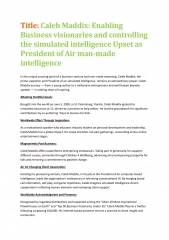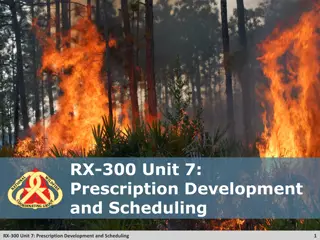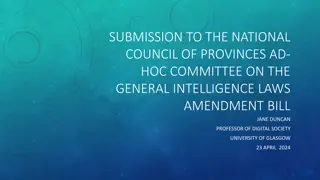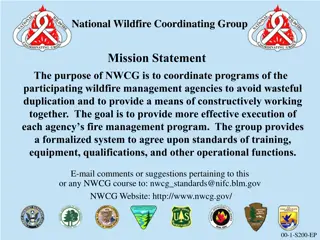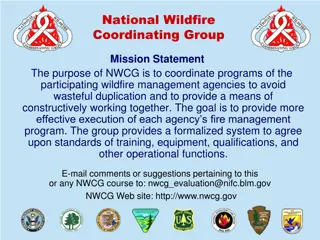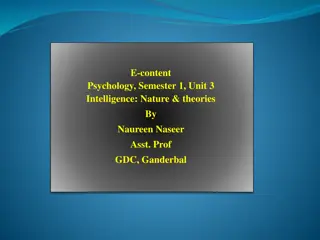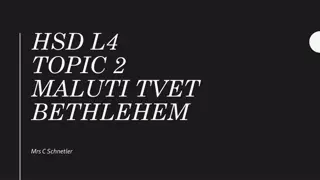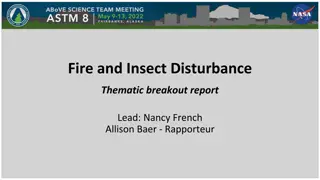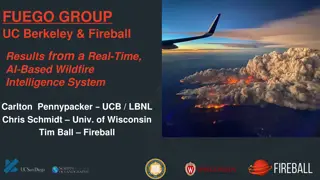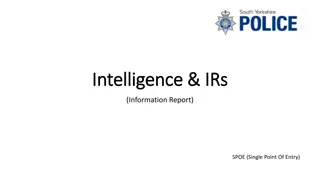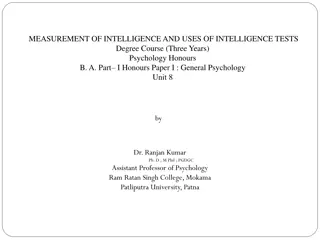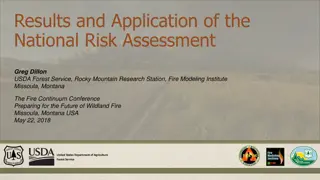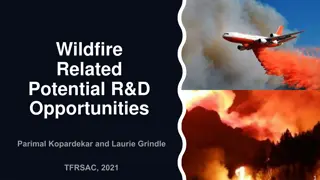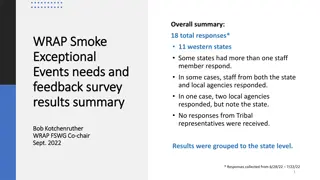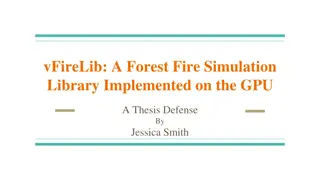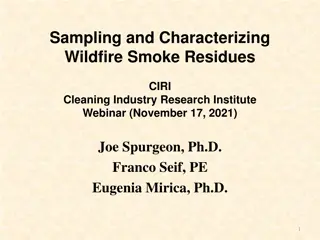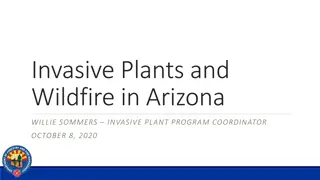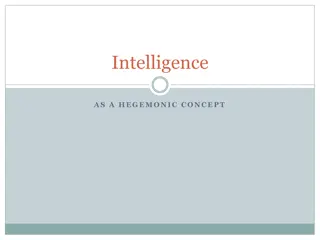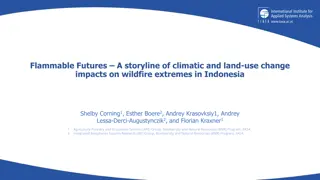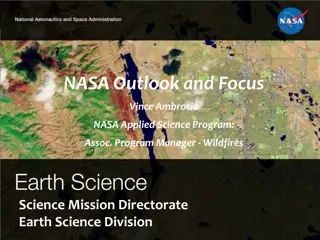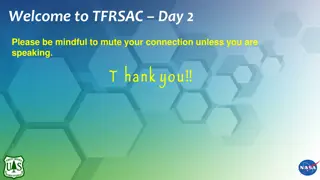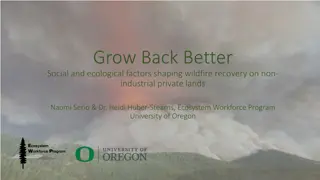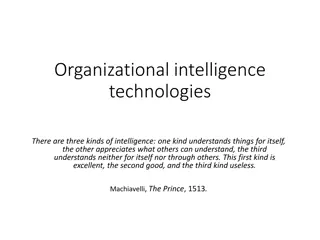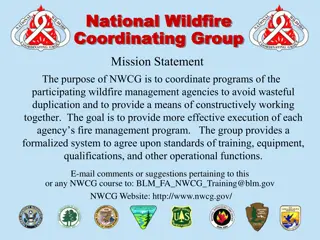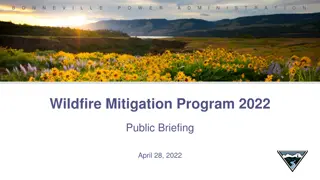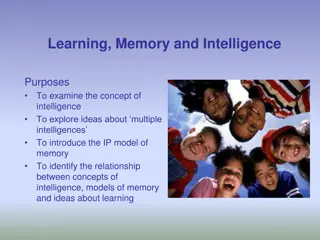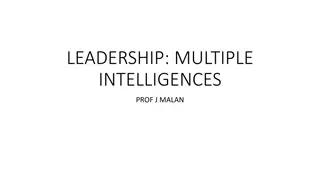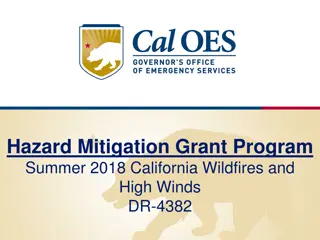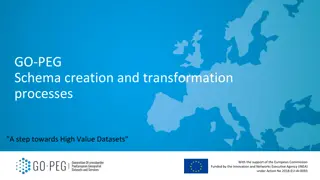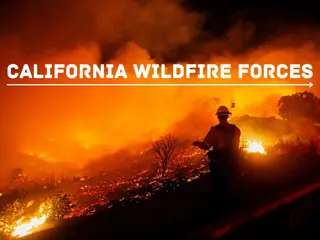Caleb Maddix: Graphing the simulated intelligence Wilderness and Moving Business
Find Caleb Maddix's rousing process from youthful creator to Leader of Air artificial intelligence. His influence is global as a pioneer in entrepreneurship and artificial intelligence. Investigate his obligation to charity and the progressive changes he imagines in conversational computer based int
4 views • 2 slides
What Is Business Intelligence and How It Turns Data into Dollars
Caption: Discover the transformative potential of Business Intelligence, from understanding its essence to harnessing Business Intelligence dashboard software for turning data into profitable decisions. Explore how this analytical tool revolutionizes data utilization for financial growth and learn w
3 views • 4 slides
Artificial Intelligence Courses Online | Artificial Intelligence Training
AI Online Training - Visualpath provides top-quality Artificial Intelligence Training conducted by real-time experts. Our training is available worldwide, and we offer daily recordings and presentations for reference. Call us at 91-9989971070 for a free demo.\nWhatsApp: \/\/ \/catalog\/919989971070
1 views • 11 slides
Theories of Intelligence: Monarchie vs. Spearman's Two-Factor Theory
The Monarchie Theory of Intelligence posits a single factor of intelligence, while Spearman's Two-Factor Theory divides intelligence into a general ability (G-factor) and specific abilities (S-factors). The implications of these theories on educational practices are discussed, shedding light on the
11 views • 25 slides
Prescription Development and Scheduling in Wildfire Management
Explore the essential steps involved in developing prescriptions for prescribed fires, including identifying objectives, calculating fire behavior, and setting parameters. Learn about prescription variables, fire modeling outputs, and documentation requirements. Understand the importance of precise
0 views • 25 slides
Reforming Intelligence Laws for Effective Oversight and Accountability
Urgent completion of the National Security Strategy and architectural review is crucial before amending intelligence laws. The establishment of a dedicated Ministry of Intelligence, clarification of definitions, and enhancing oversight mechanisms are recommended to address gaps and improve the intel
0 views • 10 slides
National Wildfire Coordinating Group (NWCG) - S-200 Initial Attack Incident Commander Course Overview
NWCG aims to enhance coordination among wildfire management agencies to improve fire management program effectiveness. The S-200 course focuses on transitioning from Operations to Command roles, developing leadership skills, incident management, and evaluation techniques. Student evaluation includes
0 views • 12 slides
National Wildfire Coordinating Group - S-270 Basic Air Operations Course
NWCG's mission is to coordinate wildfire management agencies, avoid duplication, and enhance program effectiveness. The S-270 Basic Air Operations course aims to provide a foundational understanding of different aspects of Air Operations, including course logistics, objectives, and reference materia
0 views • 14 slides
Understanding Intelligence: Theories and Types Explored
Intelligence is the global capacity to comprehend the world, think logically, and utilize resources effectively. This content delves into the nature of intelligence, explaining intelligent behavior and discussing different types of intelligence such as verbal comprehension, spatial visualization, an
0 views • 13 slides
Understanding Intelligence: IQ and Emotional Intelligence in Education
The concept of intelligence is explored through IQ testing and emotional intelligence in education. IQ, based on cognitive abilities, helps in assessing academic potential and identifying learning barriers, while emotional intelligence (EQ) plays a crucial role in understanding and managing emotions
1 views • 13 slides
Boreal Wildfire Effects and Research Synthesis
The thematic breakout report focuses on the impacts of fire and insect disturbances on the environment, with projects studying wildfires in boreal regions and their effects on ecosystems. Various studies funded by agencies like NASA and ERC aim to understand wildfire vulnerability, resiliency, and c
0 views • 10 slides
Fuego: AI-Based Wildfire Intelligence System Detecting Rapid Wildfire Behavior
Fuego, developed by Fuego Group UC Berkeley and Fireball, is a real-time AI-based system focusing on wildfire behavior in the Wildland-Urban Interface (WUI). The system detects wildfires early, surpassing predictions for 2080 severity. It emphasizes the impact on low-income communities, particularly
1 views • 11 slides
Overview of Intelligence Testing in Psychology: Insights and Perspectives
Delve into the fascinating realm of intelligence testing as explored by Dr. Ranjan Kumar, covering the significance of IQ tests, the concept of intelligence, historical perspectives on intelligence measurement, and key figures like Alfred Binet and David Wechsler. Gain insights into the evolution of
2 views • 52 slides
Understanding Intelligence Reporting and Assessment in Policing
Intelligence plays a crucial role in police decision-making by providing evaluated information. This report outlines the National Intelligence Model, criteria for assessing intelligence relevance, accuracy, and value, as well as guidelines for information submission in law enforcement settings. It e
0 views • 8 slides
Understanding Intelligence and Intelligence Testing: A Psychological Perspective
Explore the concept of intelligence, its measurement, and classical theories through the lens of psychology. Learn about the different perspectives and factors that shape our understanding of intelligence.
1 views • 60 slides
Understanding Emotional Intelligence in the Workplace
Explore the significance of emotional intelligence in the workplace, its definition, five competencies, case studies, and strategies to enhance skills. Dive into scenarios, role-plays, misconceptions, and why emotional intelligence is crucial for professional success. Learn about managing emotions,
0 views • 33 slides
Understanding Artificial Intelligence and Intelligence in Computers
Artificial Intelligence (AI) aims to create intelligent computer systems that mimic human behaviors. It involves algorithms derived from human intelligence to make computers smarter and more useful. This includes the ability to acquire knowledge, think, reason, and exhibit goal-oriented behavior. Th
0 views • 13 slides
Understanding Emotional Intelligence: Key Principles and Skills
Emotional intelligence, as presented by David Taylor, is crucial in perceiving, understanding, and managing emotions in oneself and others. It plays a vital role in professional and personal relationships by enhancing emotional awareness, recognition, and management. The principles of emotional inte
1 views • 22 slides
Understanding Artificial Intelligence: A Comprehensive Overview
Explore the realm of Artificial Intelligence (AI) through its definitions, historical context, and practical applications. Delve into the core elements of AI, including discerning intelligence, learning, reasoning, and understanding the role of algorithms and specialized hardware in AI performance.
0 views • 16 slides
Insights into Theories and Definitions of Intelligence
Various psychologists throughout history have defined intelligence in different ways, highlighting aspects such as judgment, reasoning, adaptation, problem-solving, and overall mental capacity. From Binet to Gardner, each perspective sheds light on the diverse facets of intelligence, emphasizing the
3 views • 52 slides
Understanding Wildfire Risk Mitigation Among Private Landowners
Activities involving fuel reduction and defensible space are crucial among private landowners for mitigating wildfire risks. Factors influencing mitigation behavior include wildfire hazard, past experiences, perceived risk, and social context. Information from local government agencies and fire awar
3 views • 15 slides
National Wildfire Risk Assessment and Mitigation Strategies
The National Risk Assessment focuses on identifying and prioritizing hazardous fuels reduction projects to mitigate wildfire risks. Strategic objectives include developing a national risk model and tracking changes over time using a risk index based on national-scale datasets. Leveraging methods out
0 views • 20 slides
Wildfire R&D Related Opportunities and Statistics Overview
Comprehensive overview of wildfire-related research and development opportunities, outlining statistics on wildfire suppression costs, fire incidents, and acres affected. The content includes workshop goals, stakeholder needs assessment, and key challenges in the field. Insights from SME inputs, lit
0 views • 18 slides
Wildfire Smoke Exceptional Events Survey Summary
Survey results indicate that staff across various organizations in 11 Western states possess the expertise to develop wildfire smoke exceptional events demonstrations for particulate matter and ozone. The majority of states express readiness to assist other organizations and seek training to enhance
0 views • 17 slides
vFireLib: Forest Fire Simulation Library on GPU
Dive into Jessica Smith's thesis defense on vFireLib, a forest fire simulation library implemented on the GPU. The research focuses on real-time GPU-based wildfire simulation for effective and safe wildfire suppression efforts, aiming to reduce costs and mitigate loss of habitat, property, and life.
0 views • 95 slides
Comparison of Wet-Wipe and Tape Lift Methods for Sampling Wildfire Smoke Residues
This research study compared the performance of wet-wipe and tape lift sampling methods for evaluating the impact of surface char from wildfire smoke residues. The study involved sampling 48 houses in Southern California affected by different wildfires, utilizing side-by-side replicate samples colle
0 views • 56 slides
Managing Invasive Plants and Wildfire in Arizona
The Invasive Plant Grant Program in Arizona is actively combating invasive plant species to prevent wildfires and preserve ecosystems. State funds are allocated for projects targeting species like Saltcedar and Buffelgrass. Grant criteria and projects in 2019 and 2020 reveal a focus on eradicating n
0 views • 19 slides
Unpacking the Notions of Intelligence and Social Hegemony
This presentation delves into the complex concepts of intelligence and social hegemony, exploring historical perspectives, scholarly debates, and folk beliefs. It challenges the hegemonic nature of contemporary intelligence definitions and examines the power dynamics within civil society. Through a
1 views • 14 slides
Impacts of Climate Change on Wildfire Extremes in Indonesia
A study explores the impacts of climatic and land-use changes on wildfire extremes in Indonesia, focusing on current and future climate-driven fires. The research examines the influence of factors such as drought, economic policies, and adaptation efforts on burned areas, agricultural losses, and la
0 views • 9 slides
NASA Wildfire Management Program Overview
NASA's Applied Science Program focuses on wildfire management efforts through the ROSES-2011.A.35 solicitation, aiming to enhance decision-making and actions related to wildland fires. The program supports research projects, collaborations with the fire community and sister agencies, and outreach ac
0 views • 11 slides
TFRSAC Day 2 Meeting Overview & Objectives
The 35th Tactical Fire Remote Sensing Advisory Committee (TFRSAC) meeting hosted by USDA Forest Service and NASA focuses on advancing wildland management practices and enhancing fire observation capabilities. The agenda includes sessions on AI/ML in support of wildfire management, wildfire decision
0 views • 6 slides
Exploring Social and Ecological Factors in Wildfire Recovery on Private Lands
This study delves into the social and ecological aspects influencing wildfire recovery on non-industrial private forest lands post the Labor Day fires. Focusing on NIPF landowners, the research aims to understand the factors shaping resilience and recovery at the landscape level, including the role
0 views • 12 slides
Understanding Organizational Intelligence Technologies
Organizational intelligence technologies involve three kinds of intelligence - understanding independently, appreciating what others can understand, and understanding neither for itself nor through others. This concept emphasizes the importance of collecting, storing, processing, and interpreting da
0 views • 47 slides
National Wildfire Coordinating Group Mission Statement and Course Objectives
NWCG aims to coordinate wildfire management programs efficiently to enhance execution, avoiding duplication. The course objectives focus on understanding the structure of Expanded Dispatch and developing skills in mobilizing incident resources, effective communication, and fostering positive relatio
0 views • 13 slides
BPA Wildfire Mitigation Program 2022 Public Briefing Overview
The BPA Wildfire Mitigation Program 2022 Public Briefing, held on April 28, 2022, highlighted various aspects including the fire season outlook, wildfire mitigation plan, public safety power shutoff, and strategic management updates. The program aims to address wildfire risks in the BPA service terr
0 views • 18 slides
Exploring Concepts of Intelligence, Memory, and Learning
This presentation delves into the concept of intelligence, explores multiple intelligences, introduces the IP model of memory, and examines the relationship between intelligence concepts, memory models, and learning ideas. It discusses various understandings of intelligence, challenges the fixed int
0 views • 20 slides
Understanding Successful Intelligence in Leadership by Prof. J. Malan
Successful intelligence in leadership involves a balance of analytical, practical, and creative abilities. Fiedler and Link suggest that intelligence predicts leadership success under low-stress conditions, highlighting the interaction between stress, intelligence, and leadership. Leaders must analy
0 views • 33 slides
Mitigating California Wildfires: Hazard Mitigation Grant Program Overview
The Hazard Mitigation Grant Program (HMGP) aims to reduce loss of life and property from future disasters by implementing long-term risk reduction strategies. The program focuses on creating or updating Local Hazard Mitigation Plans, prioritizing post-wildfire mitigation activities, including soil s
0 views • 18 slides
Challenges in High-Value Datasets Creation and Transformation Processes
The creation and transformation process of high-value datasets, such as POP-WILDFIRE, face challenges like schema harmonisation, schema creation, and data transformation. Issues include identifying pan-European datasets, data pre-processing, aligning with INSPIRE directive, and adapting existing met
0 views • 6 slides
California wildfire forces
Sheriff deputies in Malibu were going door to door ordering people to evacuate as a nearby wildfire rapidly intensified, threatening homes in the beach community.
1 views • 24 slides
